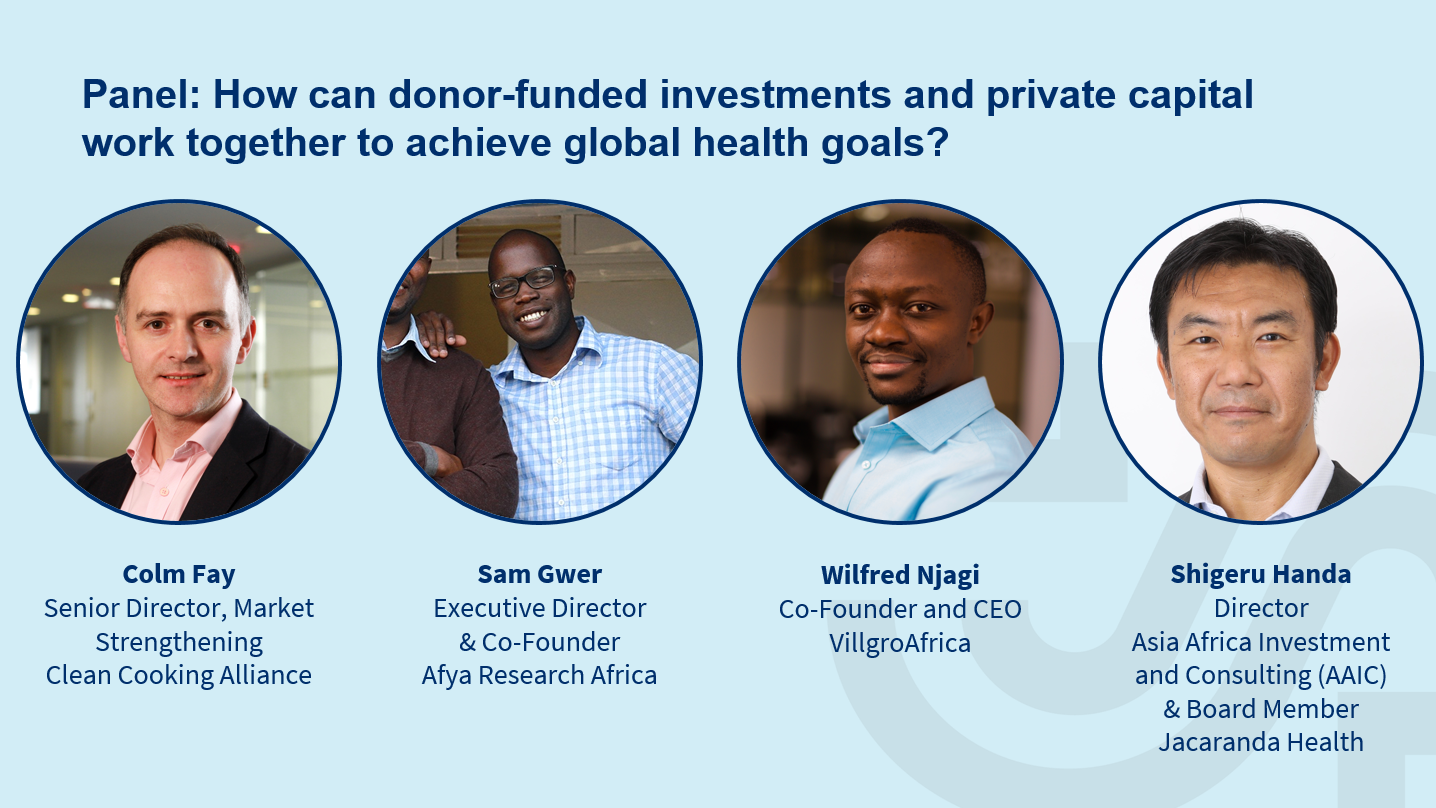Making the case for investing in health enterprises
A recent SHOPS Plus webinar on investing in social enterprises affirmed these key insights:
Social enterprises provide critical health services to their communities and they care about quality. More social enterprises could thrive if they had opportunities to receive grant capital along with technical assistance in the early stages of their businesses. This assistance could prepare them for further investment by private investors. The success of a social enterprise also depends heavily on a strong market ecosystem—a system of policies, institutions, and public and private capital flows.
SHOPS Plus hosted the event featuring donors, healthcare entrepreneurs, and investors.
A fund to support early-stage health businesses
Elaine Menotti, health science specialist and deputy division chief at USAID, opened the discussion by giving an overview of a challenge fund for health enterprises led by the predecessor project to SHOPS Plus. The HANSHEP Health Enterprise Fund, which ran from 2013 to 2015, gave financing and technical assistance to 16 early-stage business in sub-Saharan Africa.
SHOPS Plus studied three of the businesses to learn how they increased access to family planning products and services after the Health Enterprise Fund ended and to better understand the long-term benefits of USAID’s investment. A new report from SHOPS Plus documents the findings.
Perspectives from entrepreneurs and investors
Sam Gwer of Afya Research Africa shared his thoughts from the perspective of a former grantee. Colm Fay of the Clean Cooking Alliance and former manager of the Health Enterprise Fund offered insights from his role working on the fund and leading the design of the study. Wilfred Njagi of VillgroAfrica provided his viewpoint as an investor specializing in start-ups, while Shigeru Handa of Asia Africa Investment and Consulting gave his perspective as a private investor. April Warren, senior private sector advisor on SHOPS Plus at Abt Associates, moderated the panel.

The panelists agreed that the time it takes for these businesses to achieve scale will likely extend past the typical five-year project cycle. By investing in continued monitoring beyond grant periods, USAID and its partners can support social enterprises more effectively and better measure the impact of their investments on service delivery and the broader health systems in which they operate.
The [HANSHEP Health Enterprise] fund was catalytic for several of the enterprises in the portfolio. But, going back to this study, I think one of the big learnings and insights is just how long it takes to build ventures. It is a long-term endeavor. And companies need that long-term support to be successful.” – Colm Fay, Clean Cooking Alliance
Gwer and Fay acknowledged that family planning service delivery was not a sustainable source of revenue for the enterprise, although the services drew patients into health facilities. Family planning should be integrated into a broader business model of primary care services.
“Just looking at this panel,” remarked Njagi, “we have the full stock of capital represented here, so we have donors here, we have incubator/accelerators, and downstream investors. If we could do this at the beginning of the program, . . . then I think, we increase our chances of success.”
Handa echoed this statement by saying, “It’s important for the different players in the social enterprise community to know each other and jointly support startups.”